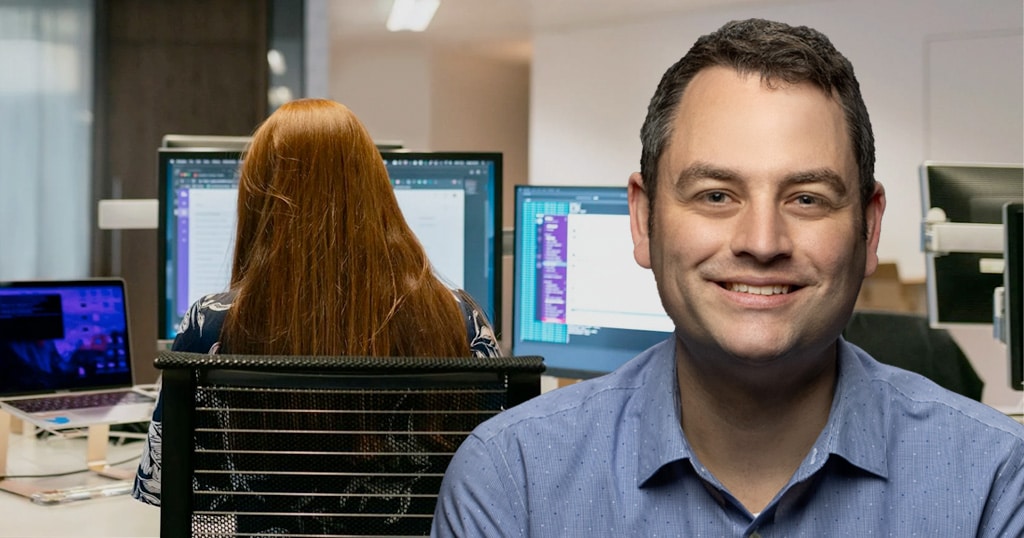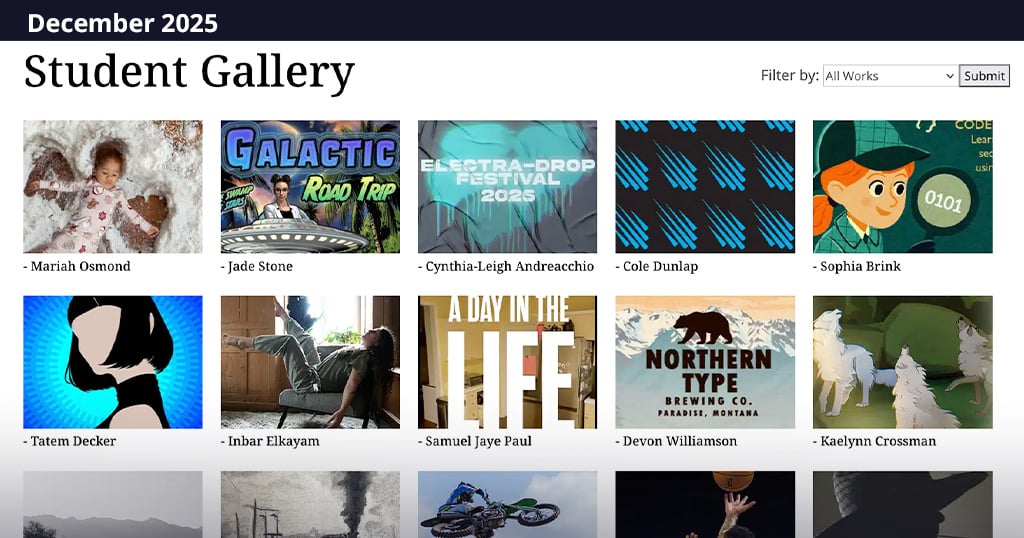Advisory Sessions: Leaning into Empathy and Problem Solving

Q: With technology changing so rapidly, what advice do you have for Web Design or Digital Media graduate regarding the job search and interview process? How can they stand out from the crowd?
A graduate needs to have distinctive portfolio materials. In creating a portfolio, a designer should strive for quality over quantity, but distinctiveness over all. Nothing is more disappointing than seeing portfolio materials that look closely borrowed.
It’s also important to remember that real-world work is worth double any notional redesign. If your portfolio is packed with school projects, find a small nonprofit that could use help and design them some social assets. Beyond the work itself, this demonstrates the initiative and follow through.
When presenting your design work, look for opportunities to demonstrate process. Show alternates and rejected approaches. Show your work!
Q: What software or technical skills (such as HTML) should a graduate be fluent in for your industry?
A Web Design or UX graduate should be comfortable across Photoshop, Illustrator, Figma, CSS, and Chrome Dev Tools.
Not to be underestimated is extreme comfort with Google Sheets, and basic understanding of data formats like CSV and JSON. An employer would award bonus points for GitHub (collaboration with developers), Framer (motion graphics), AfterEffects, and InDesign.
Q: What kind of portfolio or reel is needed in order to be considered for a position?
I would prefer a web-based portfolio, ideally self-hosted—though a portfolio on Behance and the like is OK. It should be something that can be shared asynchronously between me and my colleagues. The individual should be prepared to give a short overview on a video conference, during which 1-3 projects explored in depth, with lots of screenshots, process materials, and a background on the brief and the organization.
I would be screening for problem solving ability, flexibility, and originality. A basic resume is required, and a brief cover letter should prove they are actually familiar with the opportunity and, if necessary, acknowledge any discrepancies in a resume. A great portfolio and passion overcomes any lack of experience on a resume.
Q: What types of portfolio projects do you expect to see for an entry-level position in your industry?
The portfolio should show the ability to create static webpages that work nicely across mobile and desktop, as well as social media materials. You’d expect to see implementations of provided brand guidelines and Google Slide or Powerpoint deck templates.
I would look for microsites of various kinds: single pages, multi-pages, for an event perhaps, or a product. There might be a screen recording of a prototype. Social media graphic examples should demonstrate some flexibility and design system thinking.
Again, real world applications are always preferable to purely imagined products. I would rather see a peculiar small scale, real world implementation of a flyer than an attempt to knock off apple.com. If something smacks of being a lightly/poorly reskinned version of an existing CMS theme, for example, that drops a candidate in my book. Similarly, AI needs to be extremely judiciously used. Shortcuts are bad.
Q: Are professionals in your industry using AI tools? How have you integrated the use of AI within your own and/or professional work?
In the Web design and digital media space, professionals are using AI heavily. Some popular applications include:
- Code assist (GitHub Copilot or via ChatGPT/Anthropic)
- Outbound communications (ChatGPT/Anthropic)
- Image generation (Adobe/Stable Diffusion/Midjourney)
Personally, I am using AI primarily for writing and rewriting code, as well as doing basic data transformation (formatting/reformatting text into HTML/JSON/CSV/etc.)
Q: Do you have any concerns about the use of AI within your industry? What should graduates should know about the use of AI within your creative industry?
I think there are extremely severe implications for AI across the board, designers or developers alike. Writing code is where AI performs the best, but at the cost of the operator’s own growth. With design, the end result is usually clearly deficient from a human version but the price savings and lack of discretion on the buyer’s part leads to cheap and quick.
Nevertheless, a graduate should take some time to use it and understand it. Not at the cost of practicing work yourself. It’s coming for you, so you need to lean into your empathy as a problem-solving human that can embrace a challenge fully and combine and recombine techniques and tools in novel ways. AI can brute force solutions or offer gloppy generalizations, but it is still yet to perform well on determining the absolute best version of something.
To learn more about the industry pros that make up the Sessions College Advisory Board, visit the Advisory Board page. The Advisory is a team of senior professionals who provide workplace assessment and program review feedback to ensure that our programs keep pace with the requirements of a constantly changing industry.

Sessions Staff is a restless soul who loves to share relevant news and design industry information with current and prospective students. Read more articles by Sessions Staff.
RECENTLY ON CAMPUS





